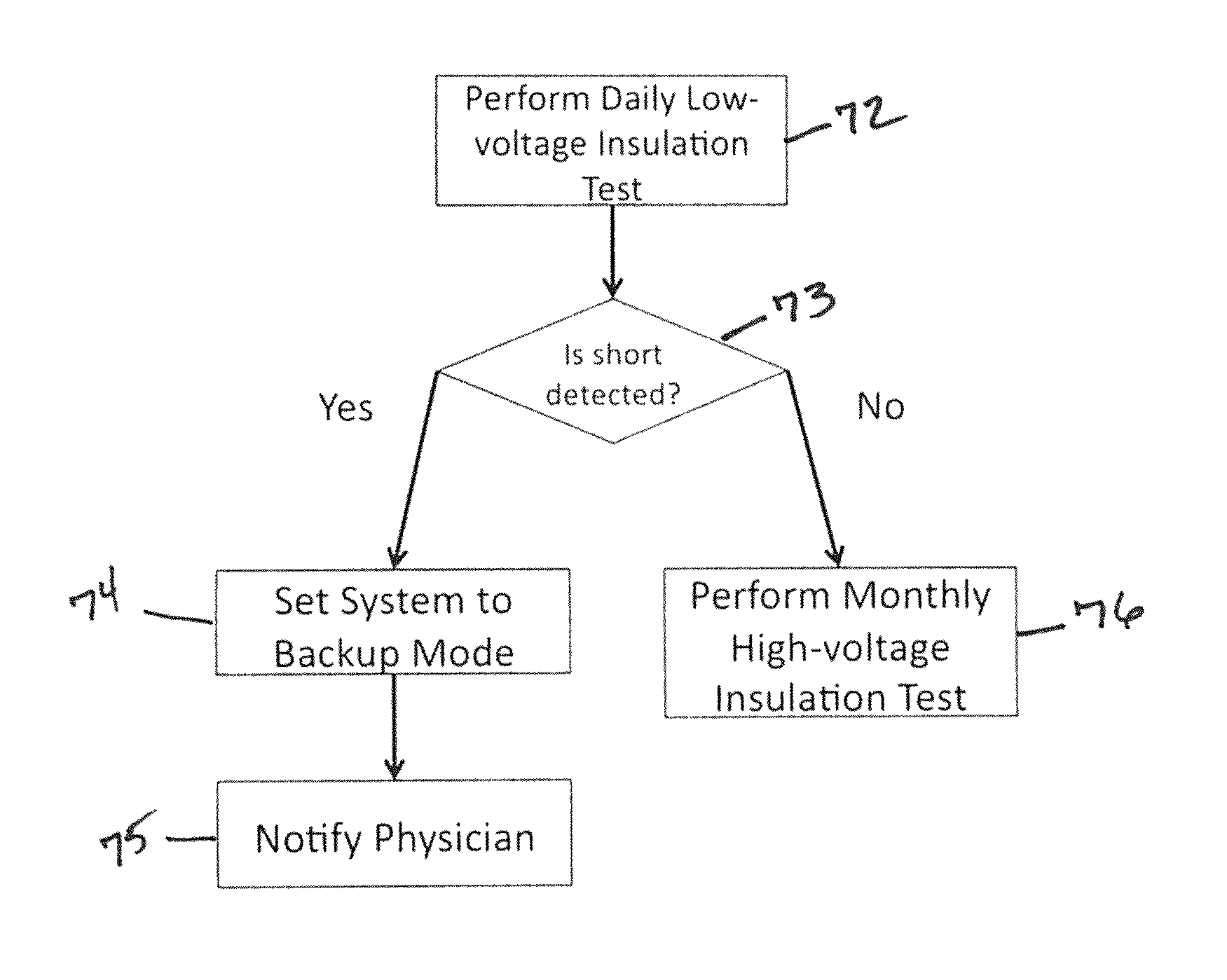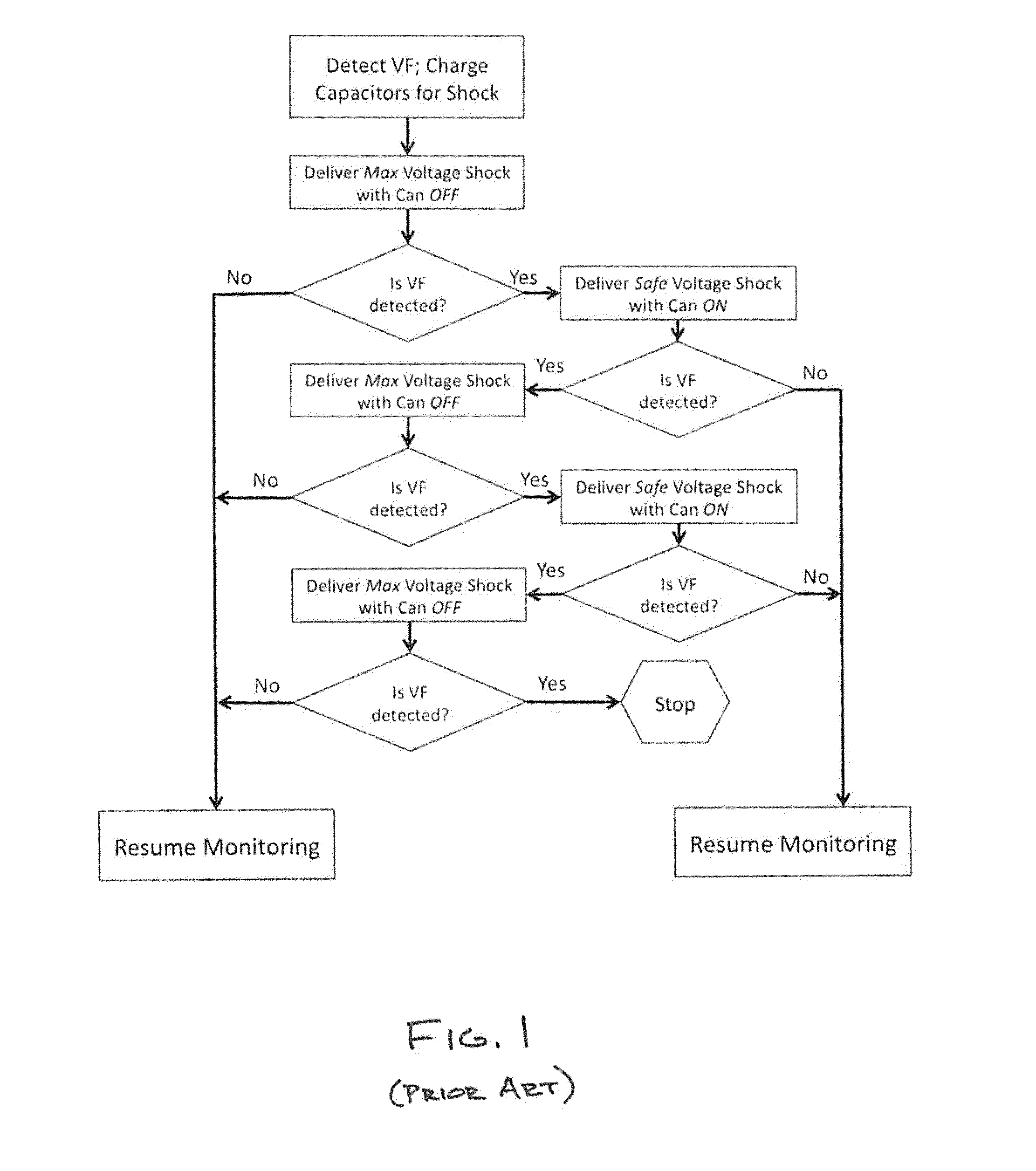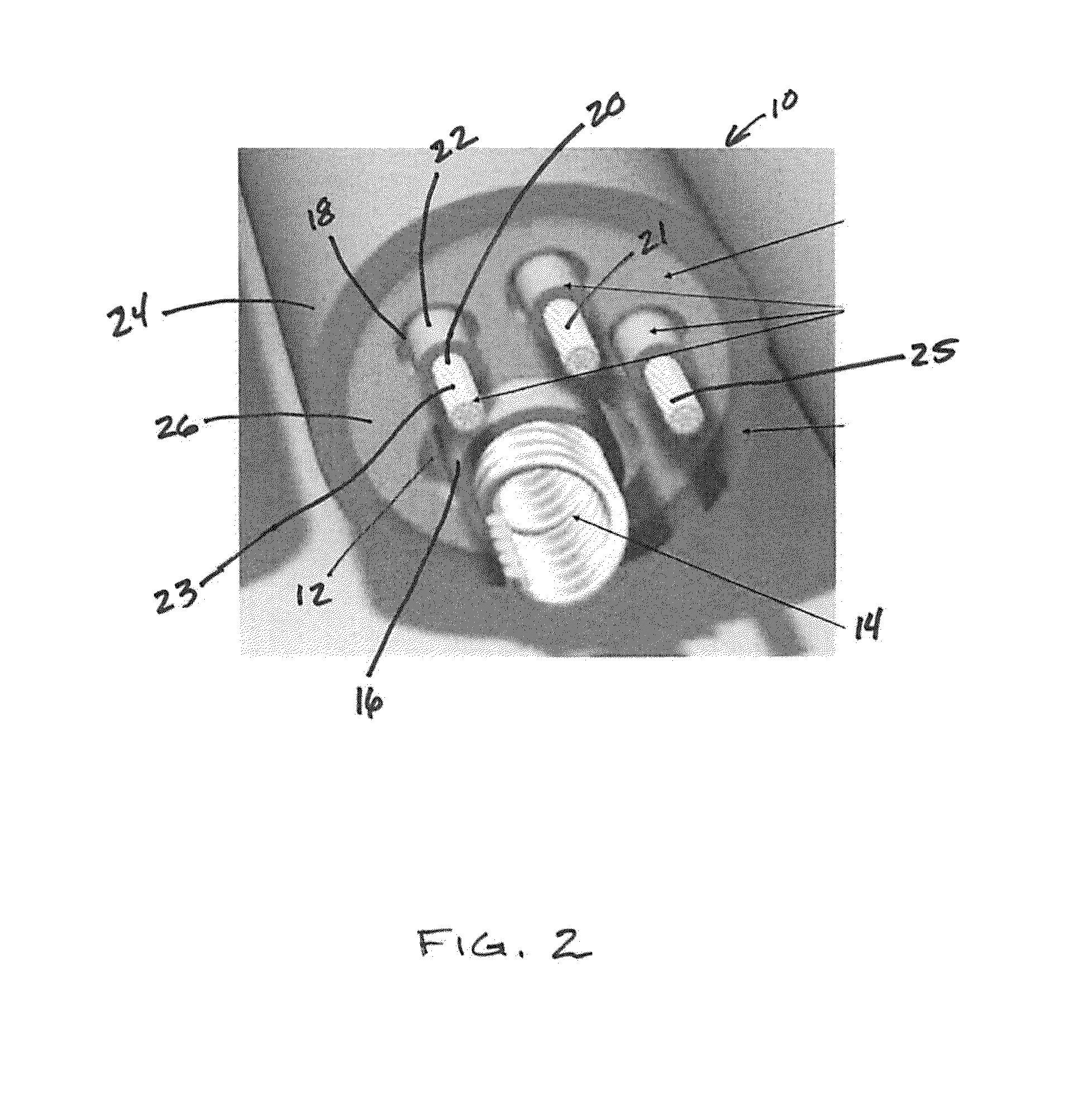Method for detecting and treating insulation lead-to-housing failures
a technology of insulation lead and failure, applied in the field of scientific and medical methods, can solve the problems of fatal failure of cardioversion or defibrillation, long-term reliability and safety of implantable cardiac lead, and functional failure of corresponding conductor, and achieve the effect of improving the resolution of the “safe” voltag
- Summary
- Abstract
- Description
- Claims
- Application Information
AI Technical Summary
Benefits of technology
Problems solved by technology
Method used
Image
Examples
Embodiment Construction
[0026]Disclosed is a method for diagnosis of conductor anomalies, such as insulation failures resulting in the shorting of a defibrillation pathway, in an implantable medical device, such as an implantable cardioverter defibrillator (ICD). Shorted defibrillation pathways are detected by measuring the impedance of the individual defibrillation pathways. If a short is identified, one electrode from the defibrillation circuit is excluded thus delivering defibrillation current only between functioning defibrillation electrodes.
[0027]Modern ICDs routinely deliver low voltage, on the order of 5 volts to 15 volts, pulses or switched AC pulse trains to assess electrical integrity of the high voltage shock pathway. However, clinical case reports indicate that life threatening insulation failures may not be detected by these low voltage measurements. Patients have died when shocks have short circuited, preventing the shock energy from reaching the heart and defibrillating ventricular fibrilla...
PUM
 Login to View More
Login to View More Abstract
Description
Claims
Application Information
 Login to View More
Login to View More - R&D
- Intellectual Property
- Life Sciences
- Materials
- Tech Scout
- Unparalleled Data Quality
- Higher Quality Content
- 60% Fewer Hallucinations
Browse by: Latest US Patents, China's latest patents, Technical Efficacy Thesaurus, Application Domain, Technology Topic, Popular Technical Reports.
© 2025 PatSnap. All rights reserved.Legal|Privacy policy|Modern Slavery Act Transparency Statement|Sitemap|About US| Contact US: help@patsnap.com



